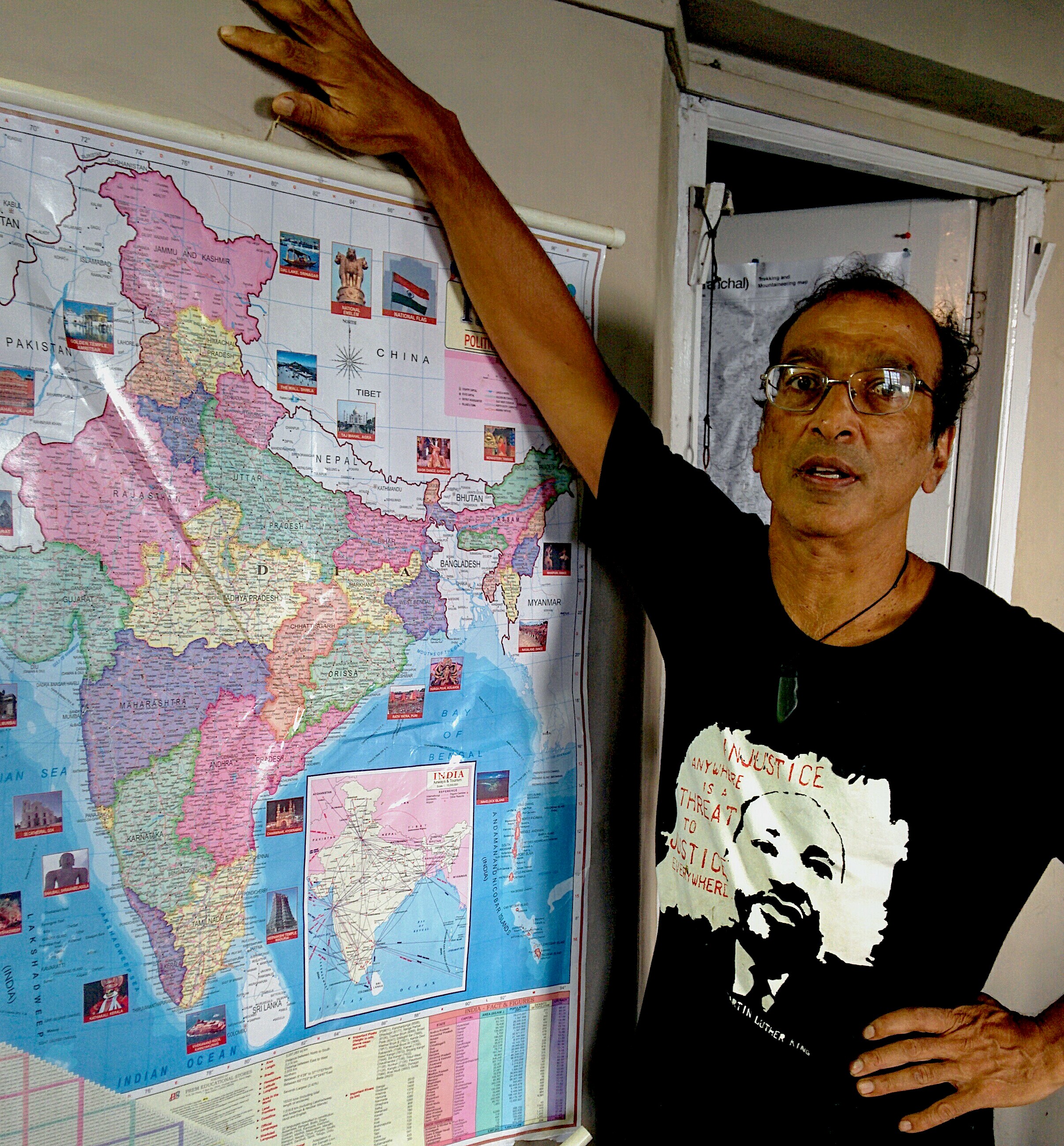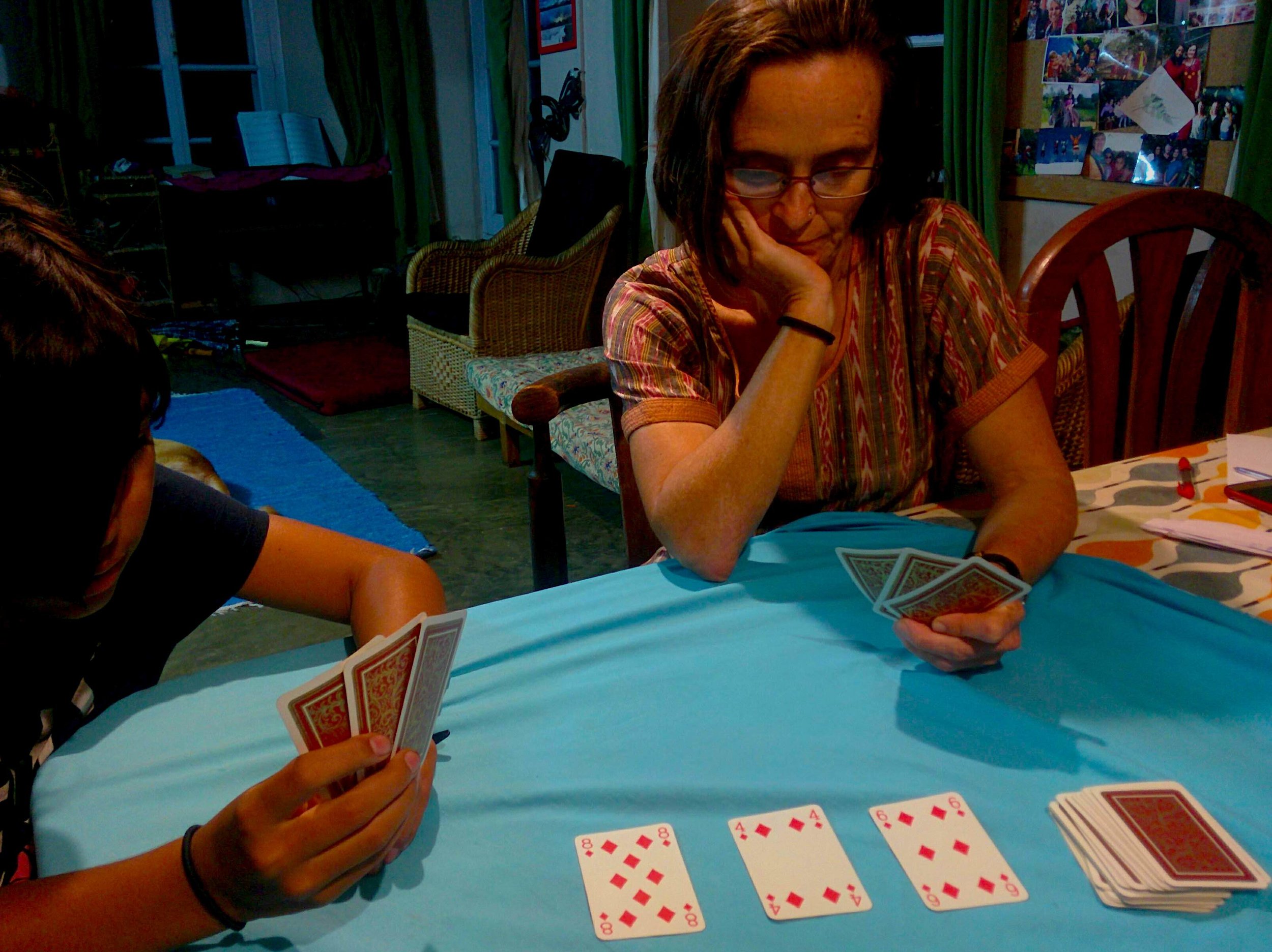Wisdom from my favourite cartoonist, Australian mystic Michael Leunig. Simply brilliant!
Two human beings sharing the same space but using very different information to answer very different questions and coming up with oh-so-different answers. I love how the trellis mimics the graph and curvy, upward spiralling green shoots parody the downward-plummeting red zig-zags. Most of all a simple, smiling woman looking tenderly down as water wets earth in counterpoint to an upwardly gazing executive, mouth down-draped and shoulders slumped under the weight of his lead grey suit and unfulfilled expectations. Simple... Brilliant. Simply brilliant!
They're monitoring-using systemic information to answer system questions. We can imagine the questions their respective monitoring systems are answering. Totally different."Wasn't the bright sun lovely and the breeze pleasant on my way to work this morning ? (and my washing will be dry) vs. "Are the cheap products from China affecting our profits?". Yep, totally different. No, wait! They have the same deep question: "Is my world a good place today?" Monitoring differently- looking at different dimensions- they're extracting different answers. From the same question, the same world.
So it is with development projects. Our monitoring questions determine the world we see. In Afghanistan I'm with a team running an excellent clinic. Their monitoring- information on patients seen, diagnoses, treatments, how long for a consult (they really gave patients time), and even patient's satisfaction (asked of patient and family in the waiting room) tells them they're good. Excellent in fact. The project (rightly) see themselves as an excellent clinical service. But they did not see what they did not look at- a service parallel to government, few discharges, little information on changes in peoples lives in the community, no information on social determinants that create the problems they treat. They see the patients who come but not the ones who do not: women locked in compounds, children not valued enough to be brought to them, poor people who can't afford the transport, people without the education to know these are not djinns but medically treatable problem, people in rural areas.... All unmonitored. Unseen.
The take home message? Perspectives control the world we see. India confirmed that for me on arrival back from Afghanistan. My India, this secular democracy where those not of the dominant religion or caste are discriminated against. Tired and dishevelled, wearing Afghani clothes, bearded, with a backpack on my back and a bag tied up with string (Its zip burst) on my shoulder I took a metro from Indira Gandhi International Airport to New Delhi station. I had a few hours before my train home and needed a place to sit. Paharganj opposite the station is a traveller's hangout, where western tourists, backpacked and bebangled, first wash up in India. They are accosted by touts offering hotels and restaurants and city tours and rickshaws. Every time I go there with a backpack (the universal symbol for "traveller") I am similarly hassled. Paharganj vendors see a backpack and see an opportunity. Ready to fend off the touts I headed for a cafe I know, where for the price of a chai I get a breezy rooftop, a view and WiFi.
Afghan non grata.
Last week, in Afghan clothes, bearded, backpacked, dishevelled and toting a scrappy tied-up-with-string bag I got not one offer of a hotel, rickshaw or city tour. Not one. The young man at "my" cafe who has welcomed me (or at least my money) many times before did not recognize me. Though unwelcoming he did, unwillingly, serve me a chai. There were a couple of tourists there, but plenty of space. Space for Western tourists, for a New Zealand/Indian development specialist even. Not for a muslim Afghan. I drained my chai and had only just put the cup back on its saucer when the waiter came over to suggest it was time to leave. I paid and walked out with the dregs still warm in the cup.
Perspectives!
Ah, yes we see what we're looking for. Boundary decisions, what is in and what's out. There are practical reasons to make them, but the cost is missed opportunities. They guy at the cafe will never know he missed selling me breakfast last week because ‘Afghan muslim’ was on the other side of his definition of who he wanted in his hotel. I did not get breakfast, he missed out on profit. I do the same. How often do I exclude people and important things from development decisions. How often do I miss opportunities because I'm looking the wrong way? I don't know, because I only see what I see.
As Michael Leunig says "See the world you look for. Red zig-zags or green curves. Your choice."
* image from: https://s-media-cache-ak0.pinimg.com/originals/44/09/d3/4409d3eabee2324b1569ce8b93679eba.jpg use with permission.












